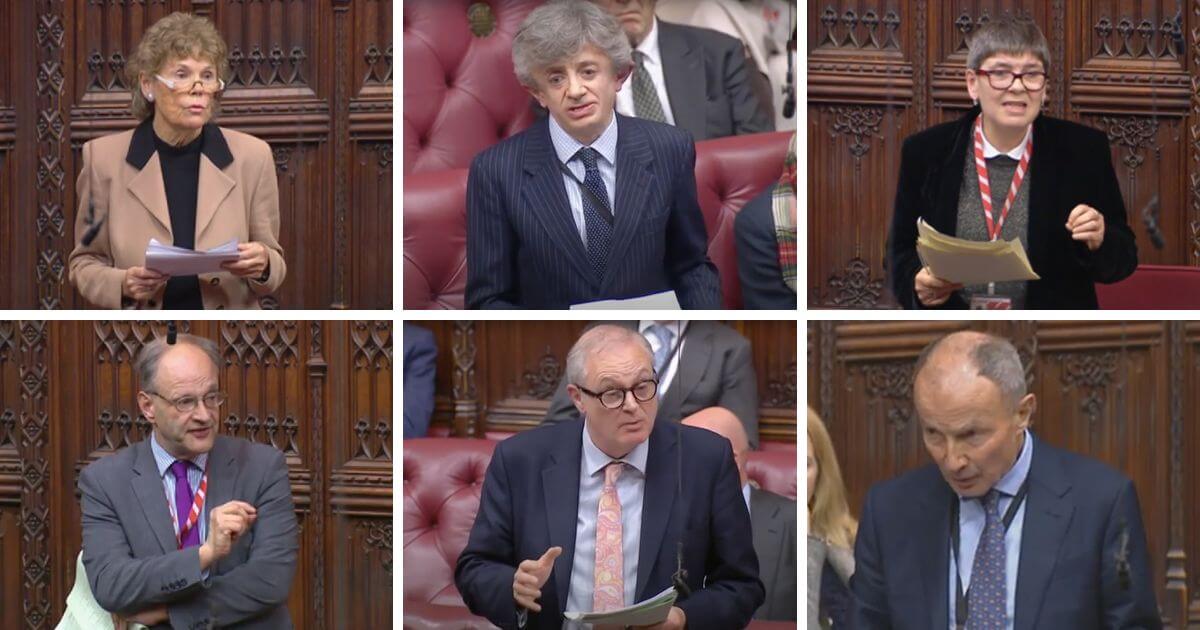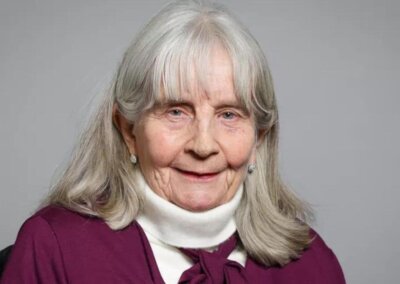A number of peers in the House of Lords have spoken out against an amendment to a Government Bill that will introduce nationwide censorship zones surrounding abortion clinics, which make it illegal to “influence” any woman seeking an abortion.
On Monday night, during a debate that proceeded late into the evening, peers debated several amendments intended to modify or replace a similar censorship zone clause that was deemed incompatible with legislation from the European Court of Human Rights.
In particular, a number of peers expressed serious concern about the use of the term “influence” in Amendment 45, which makes it an offence to “[influence] any person’s decision to access, provide or facilitate the provision of abortion services…”
Lord Weir of Ballyholme, Lord Jackson of Peterborough, Lord Cormack and Baroness Fox of Buckley all spoke about the potential serious free speech implications of the Amendment.
Freedom to influence “is the basis of democracy”
Lord Weir raised concerns about making it a criminal offence of “influence”, someone saying that “surely at the heart of the concept of freedom of speech, and the value of democracy, is the peaceful way in which people try to persuade others of their point of view?… I indicated clearly that, where that goes beyond the art of persuasion towards any level of threat or intimidation, it is unacceptable and should be criminal, but if we are criminalising expressions of opinion or influence, that is fundamentally wrong.”
Baroness Fox, who herself is a supporter of abortion, also linked the freedom to influence to democracy saying “Influencing is the basis of democracy”. While arguing that women should be able to choose to have an abortion, she also said that women “must be free to change their mind at any time and in any direction, up until either termination or what have you. It is not coercive if you think again.”
Silent prayer made illegal?
A number of peers drew attention to the fact that the amendment in question might ban silent prayer and referred to the recent case of Isabel Vaughan-Spruce, a woman who was arrested for praying in her own mind near an abortion clinic. The abortion clinic was in the vicinity of a Public Space Protection Order (PSPO), which makes prayer illegal within its boundaries.
Lord Jackson added “This amendment does not actually exclude the outside of private property, so anyone who is in their private garden or their own car expressing their conscience could be criminalised.”
Other peers such as Lord Farmer, who proposed an alternative amendment, and Baroness Hoey, argued that there is no evidence that this kind of law is needed and that harassment can be dealt with under existing legislation.
Despite the serious concerns raised, the Members of the House of Lords supported the amendment, which will shortly be returning to the House of Commons.
Right To Life UK spokesperson Catherine Robinson said “This amendment is nothing short of the criminalisation of a particular point of view. It makes it illegal to be publicly, and even privately, pro-life in a certain part of the country. Lord Shinkwin encouraged other peers who are not concerned with ‘setting dangerous precedents or about passing laws brimming with unintended consequences’ to support for the Amendment, and that is exactly what they did. In all likelihood, this poorly thought-through piece of legislation will be passed by the House of Commons and result in a series of court cases because it is not clear, in a case of silent prayer for example, whether an individual is breaking the law or not.”
“This legislation is an instance of the abrogation of responsibility since it will ultimately be the decision of a particular judge to set the precedent for the correct interpretation of the law.”










